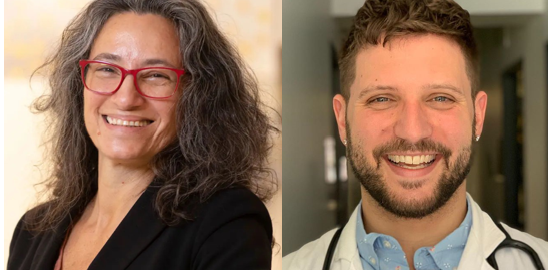
Q&A with New York State Society of Physician Assistants Leadership
Recently, Brown & Weinraub’s Emily Whalen interviewed Current President of the New York State Society of Physician Assistants Patti Cuartas PA-C, MBA, PMP, FACHE, ACHIP and Immediate Past President Jonathan Baker PA-C, MPAS, DFAAPA.
What is a PA and how do they practice?
PAs are licensed clinicians who practice medicine in every specialty and setting for every age group. PAs are dedicated to expanding access to care and promoting health and wellness through patient-centered, team-based medical practice. PA’s practice under physician supervision, meaning the physician must be available to the PA but is not required to be on-site, or to countersign notes or orders or have routine or specific interaction with a PA, except when the supervising physician determines such oversite is appropriate and necessary. During the declared public health emergency in NY, Executive Orders (EOs) 202 and 4 have allowed PAs to practice without a requirement for physician supervision for most of the last 30 months.
In an era of current and looming provider shortages, how is the role of the PA changing?
While the healthcare workforce shortages worsen, the PA profession is expected to grow 31% from 2020-2030 including graduates of over 30 PA programs in New York State. I wouldn’t say that the role is changing, but PAs are being better recognized for the work they do, and through EOs, we have had many of the barriers to providing care removed. The flexibility provided by the EOs has increased the efficiency of practices and healthcare systems.
Describe the experience of PAs during the COVID-19 crisis.
The unique medical training, skillset, and flexibility allowed PAs to fill critical workforce gaps and prepared PAs to provide essential care on the frontlines of a national crisis. PAs proved critical in establishing and managing emergency care triage tents, staffing safety net hospitals, critical access hospital emergency rooms, and ICUs, vaccination and testing efforts, telemedicine implementation, and everything in between.
Legislation passed during the recent session allows PAs to serve as primary care practitioners for purposes of Medicaid Managed Care plans. Why was that important?
Access to quality primary care and preventive care is essential to healthy communities. PAs already serve as primary care providers for Medicare and commercially insured patients, and we wanted to ensure that Medicaid Managed Care recipients have equity in access to the quality health care provided by PAs. While PAs have been providing primary care for these populations, being recognized as the primary care provider means that patients can search for a PA through their Medicaid Managed Care directory, improving the efficiency of referrals to specialists, and removing administrative barriers.
What are three things you wish policy makers knew about PAs?
- The ability of PAs to practice without physician supervision is essential to the health of the citizens of New York especially those in rural, underserved, and vulnerable communities.
- Due to the pandemic and healthcare workforce shortage, the EOs have allowed PAs to practice without a requirement for physician supervision which was provided incredible access to care. Even PAs on their first day of practice require no supervision under the EOs, and this works because practices and institutions determine the role of PAs. State mandated supervision is not necessary for safe, efficient care.
- Without the EOs, PAs practice with “supervision;” however, this does not require that a physician be on-site or available, review or co-sign charts or notes, or routine or specific interaction with a physician.
What are three things you wish patients knew about PAs?
- PAs provide excellent care and increase access to care with similar health outcomes as physicians.
- PA education is rigorous and focuses on patient education and preventive healthcare.
- PAs have a unique flexibility to work in multiple specialties or change specialties which allows PAs to develop unique expertise by accumulating years of experience in diverse specialties and settings.
Next time you schedule a medical appointment, ask to see the PA!
*sponsored content*

